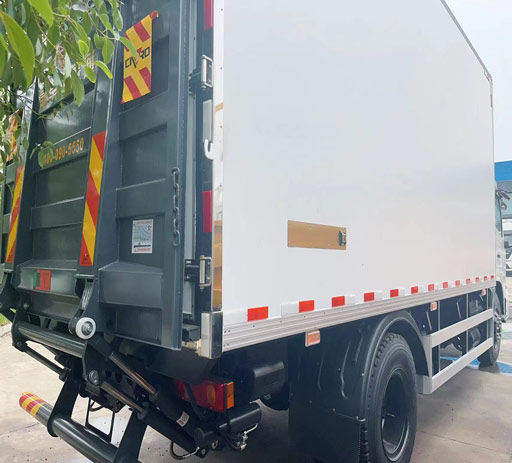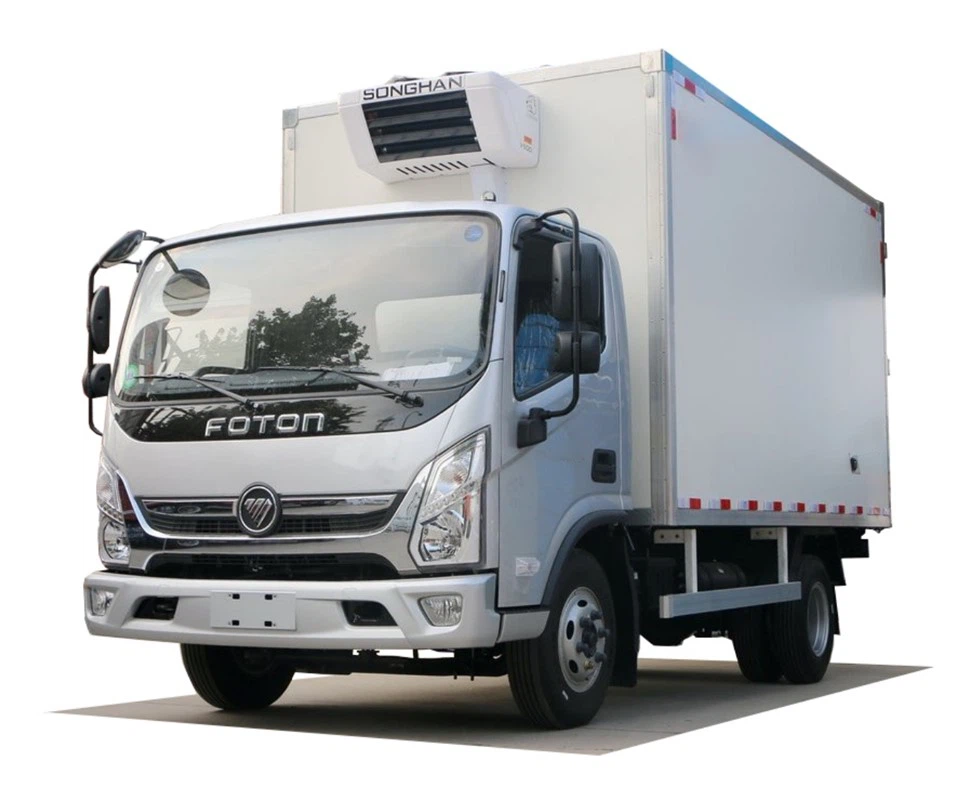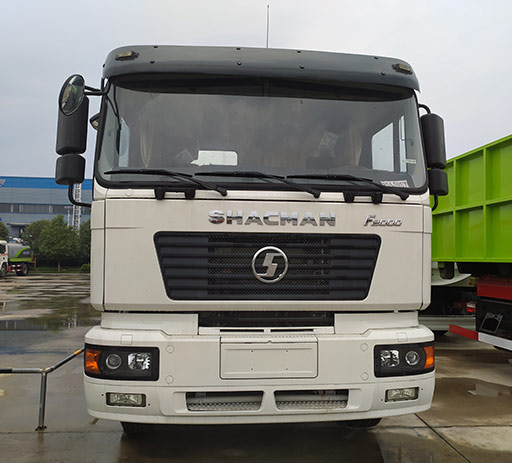Introduction
In the realm of plumbing and drainage solutions, jetting trucks have emerged as essential tools. These specialized vehicles play a critical role in maintaining and cleaning sewer and stormwater systems. With their ability to deliver high-pressure water jets for clearing clogs, jetting trucks are indispensable for municipal services and private contractors alike. This article delves into the workings of jetting trucks, their applications, benefits, and essential tips for effective use.
What is a Jetting Truck?
A jetting truck, often referred to as a sewer cleaning truck or hydro jetting truck, is a specialized vehicle equipped with a high-pressure water jetting system. This system is designed to clear blockages in plumbing and drainage systems by injecting water at high speeds. The water pressure can be adjusted according to the type of obstruction, making it effective for a wide range of applications.
Components of a Jetting Truck
| Components | Description |
|---|---|
| Water Tank | Holds the water used for jetting, typically ranging from 500 to 2,000 gallons. |
| Jetting System | Consists of a high-pressure pump and nozzle, generating water pressure between 1,500 and 4,000 PSI. |
| Hoses | Flexible hoses that transport water from the tank to the nozzles, available in various lengths. |
| Control Panel | Allows the operator to control pressure and flow rates, ensuring optimal operation during use. |
How Jetting Trucks Work
Jetting trucks utilize a high-pressure water pump to propel water through specially designed nozzles. These nozzles are engineered to create powerful jets that can cut through debris, grease, and other blockages. The operator carefully maneuvers the jetting hose into the affected drain or sewer line, activating the system to remove the buildup.
Types of Nozzles Used in Jetting Trucks
- Rotary Nozzles: Ideal for tough clogs, these nozzles rotate and provide a 360-degree cleaning action.
- Forward Jetting Nozzles: These are effective for breaking up hard materials, directing jets toward the clog.
- Rear Jetting Nozzles: Suitable for clearing debris, these nozzles push the hose forward while cleaning.
Applications of Jetting Trucks
Jetting trucks find extensive use across various industries, ensuring efficient cleaning and maintenance. Below are some common applications.
1. Municipal Sewer Maintenance
Municipalities employ jetting trucks to maintain and clean public sewer systems. Regular maintenance helps prevent blockages that can result in costly backups and environmental hazards.
2. Stormwater Drainage Cleaning
Heavy rainfall can lead to clogged stormwater drains. Jetting trucks clear leaves, mud, and other debris from these systems, ensuring proper water drainage during storms.
3. Industrial Applications
In industrial settings, jetting trucks are used to clear blocked pipes and tanks. They help maintain the flow of wastewater and prevent costly downtime due to clogged systems.
4. Residential Plumbing Services
Plumbers use jetting trucks to provide residential drain cleaning services. This method is effective for clearing stubborn drain blockages caused by grease, hair, or foreign objects.
5. Food Processing Plants
In food processing facilities, jetting trucks assist in maintaining hygiene by clearing grease traps and preventing clogs that can lead to sanitation issues.
Benefits of Using Jetting Trucks
Jetting trucks offer numerous advantages over traditional cleaning methods. Here are some key benefits:
1. High Efficiency
The high-pressure water jets can clear blockages quickly and effectively, reducing the time required for cleaning jobs.
2. Versatility
Jetting trucks can handle various types of blockages, making them suitable for different applications, from residential homes to industrial facilities.
3. Environmentally Friendly
Using water for clearing blockages is more eco-friendly than chemical solutions, contributing to the protection of local water systems.
4. Safe Operation
Jetting reduces the need for manual labor in potentially hazardous environments, enhancing operator safety compared to traditional methods.

Practical Tips for Using Jetting Trucks
Effective use of jetting trucks requires proper techniques and preventative measures. Here are some practical tips:
1. Regular Maintenance and Inspection
Ensure that the jetting truck is regularly maintained for optimal performance. Inspect hoses, nozzles, and pumps to identify any wear or damage.
2. Appropriate Pressure Settings
Understand the type of blockage and adjust the pressure accordingly. High pressure can damage pipes, so it’s crucial to use the right settings.
3. Train Operators Effectively
Ensure that all operators are adequately trained on the operation of the jetting truck and understand safety protocols. This training minimizes accidents and enhances efficiency.
4. Clear Access to Work Areas
Before starting, ensure that the area around the blockage is clear. This will help facilitate easier maneuvering of the jetting truck and equipment.
5. Use Proper Nozzle Selection
The choice of nozzle can significantly impact the effectiveness of the cleaning process. Select nozzles based on the specific application and type of blockage.
Jetting vs. Other Drain Cleaning Methods
Jetting trucks are just one option among several methods for drain cleaning. Here, we compare jetting with other popular techniques.
1. Traditional Rodding
Rodding involves physically pushing a rod through drains to break up clogs. While effective, this method can be labor-intensive and may not clear all debris compared to jetting.
2. Chemical Drain Cleaners
Chemicals can break down organic matter, but they can damage pipes and are environmentally harmful. Jetting, in contrast, uses only water and is non-destructive.
3. Mechanical Augers
Augers are effective for small clogs, but they may not reach deep blockages as jetting can. Jetting trucks provide comprehensive cleaning for various sizes of drains.
Cost Considerations for Jetting Truck Services
Understanding the costs associated with jetting services can help in budgeting for maintenance and emergencies. Here are the various factors to consider:
1. Type of Service Provided
The cost varies based on the complexity of the job. Residential services may be cheaper than municipal or industrial contracts due to scale.
2. Equipment Used

Some service providers offer advanced jetting technology, which might come at a premium but could provide more effective results.
3. Accessibility of the Site
If a location is hard to access, additional charges may apply due to the increased labor and time involved.
4. Emergency Services
Emergency call-outs typically incur higher fees, especially during off-hours or weekends when demand is high.
Maintaining Your Jetting Truck
Proper maintenance is crucial for ensuring the longevity and reliability of jetting trucks. Here are key maintenance tips:
1. Regular Fluid Checks
Monitor and change hydraulic fluids, engine oil, and water levels frequently to keep the system functioning smoothly.
2. Inspect Hoses and Connections
Check for signs of wear and replace hoses that show any signs of damage or leakage to prevent operational failures.
3. Pump Calibration
Regularly calibrate the pump to ensure it operates at the correct pressure and efficiency.
4. Cleaning the Nozzles
After each job, clean the nozzles to remove any debris buildup, ensuring optimal performance for future use.
FAQ Section
1. How often should jetting services be done?
The frequency depends on usage and age of the plumbing system. Generally, annual maintenance is recommended for residential systems, while municipal systems may require more frequent inspections.

2. Can jetting trucks damage pipes?
When used correctly, jetting trucks do not damage pipes. However, excessive pressure or improper nozzle selection can potentially lead to issues in older or weakened pipes.
3. Are jetting services environmentally friendly?
Yes! Jetting services use only water without harmful chemicals, making them a more eco-friendly option for clearing blockages.
4. What are the signs that you need jetting services?
Common signs include slow drainage, frequent clogs, unpleasant odors, or backups in your plumbing system.
5. How does jetting compare to snaking?
Jetting is a more thorough cleaning method than snaking, as it flushes out debris completely rather than just breaking it up.
6. Can jetting trucks be used in cold weather?
Jetting can be used in cold weather, but it’s essential to prevent freezing in the system by using antifreeze solutions or taking protective measures.